Certainly I had not come to York, as certainly I would not have gone anywhere, for battle-fields, but becoming gradually sensible in that city that the battle of Marston Moor was fought a few miles away, and my enemy Charles I. put to one of his worst defeats there, I bought a third-class ticket and ran out to the place one day for whatever emotion awaited me there.
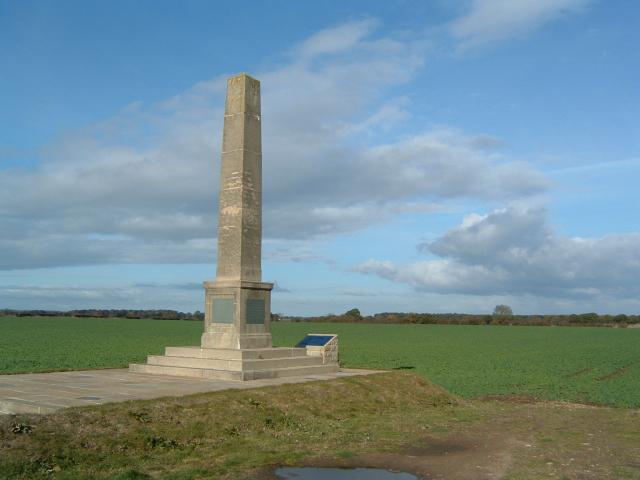 Marston Moor
Marston Moor
I
At an English station you are either overwhelmed with transportation, or you are without any except such as you were born with, and at the station for Marston Moor I asked for a fly in vain. But it was a most walkable afternoon, and the pleasant road into the region which the station-master indicated as that I was seeking invited the foot by its level stretch, sometimes under wayside trees, but mostly between open fields, newly reaped and still yellow with their stubble, or green with the rowen clover. Sometimes it ran straight and sometimes it curved, but it led so rarely near any human habitation that one would rather not have met any tramps beside one's self on it. Presently I overtook one, a gentle old farm-wife, a withered blonde, whom I helped with the bundles she bore in either hand, in the hope that she could tell me whether I was near Marston Moor or not. But she could tell me only, what may have been of higher human interest, that her husband had the grass farm of a hundred and fifty acres, which we were coming to, for seventy-five pounds a year; and they had their own cattle, sheep, and horses, and were well content with themselves. She excused herself for not knowing more than vaguely of the battle-field, as not having been many years in the neighborhood; and being now come to a gate in the fields, she thanked me and took her way up a grassy path to the pleasant farmhouse I saw in the distance.
It must have been about this time that it rained, having shone long enough for English weather, and it hardly held up before I was overtaken by a friendly youth on a bicycle, whom I stayed with the question uppermost in my mind. He promptly got off his wheel to grapple with the problem. He was a comely young fellow, an artisan of some sort from a neighboring town, and he knew the country well, but he did not know where my lost battle-field was. He was sure that it was near by: but he was sure there was no monument to mark the spot. Then we parted friends, with many polite expressions, and he rode on and I walked on.
For a mile and more I met no other wayfarer, and as I felt that it was time to ask for Marston Moor again, I was very glad to be overtaken by a gentleman driving in a dog-cart, with his pretty young daughter on the wide seat with him. He halted at sight of the elderly pilgrim, and hospitably asked if he could not give him a lift, alleging that there was plenty of room. He was interested in my search, which he was not able definitely to promote, but he believed that if I would drive with him to his place I could find the battle-field, and, anyhow, I could get a trap back from the The Sun. I pleaded the heat I was in from walking, and the danger for an old fellow of taking cold in a drive through the cool air; and then, as old fellows do, we bantered each other about our ages, each claiming to be older than the other, and the kind, sweet young girl sat listening with that tolerance of youth for the triviality of age which is so charming. When he could do no more, he said he was sorry, and wished me luck, and drove on; and I being by this time tired with my three miles' tramp, took advantage of a wayside farmhouse, the first in all the distance, and went in and asked for a cup of tea.
The farm-wife, who came in out of her back garden to answer my knock, pleaded regretfully that her fire was down; but she thought I could get tea at the next house; and she was very conversable about the battle-field. She did not know just where it was, but she was sure it was quite a mile farther on; and at that I gave up the hope of it along with the tea. This is partly the reader's loss, for I have no doubt I could have been very graphic about it if I had found it; but as for Marston Moor, I feel pretty certain that if it ever existed it does not now. A moor, as I understand, implies a sort of wildness, but nothing could be more domestic than the peaceful fields between which I had come so far, and now easily found my way back to the station. Easily, I say, but there was one point where the road forked, though I was sure it had not forked before, and I felt myself confronted with some sort, any sort, of exciting adventure. By taking myself firmly in hand, and saying, "It was yonder to the left where I met my kind bicycler, and we vainly communed of my evanescent battle-field," and so keeping on, I got safely to the station with nothing more romantic in my experience than a thrilling apprehension.
II
I quite forgot Marston Moor in my self-gratulation and my recognition of the civility from every one which had so ineffectively abetted my search. Simple and gentle, how hospitable they had all been to my vain inquiry, and how delicately they had forborne to visit the stranger with the irony of the average American who is asked anything, especially anything he does not know! I went thinking that the difference was a difference between human nature long mellowed to its conditions, and human nature rasped on its edges and fretted by novel circumstances to a provisional harshness. I chose to fancy that unhuman nature sympathized with the English mood; in the sheep bleating from the pastures I heard the note of Wordsworth's verse; and by the sky, hung in its low blue with rough, dusky clouds, I was canopied as with a canvas of Constable's.
It was the more pity, then, that at the station a shooting party, approaching from the other quarter with their servants and guns and dogs, and their bags of hares and partridges, should have given English life another complexion to the wanderer so willing to see it always rose color. The gunners gained the station platform first, and at once occupied the benches, strewing all the vacant places with their still bleeding prey. I did not fail of the opportunity to see in them the arrogance of class, which I had hitherto so vainly expected, and I disabled their looks by finding them as rude as their behavior. How different they were from the kind bicycler, or the gentleman in the dog-cart, or either one of the farm-wives who sorrowed so civilly not to know where my lost battle-field was!
In England, it is always open to the passenger to enforce a claim to his share of the public facilities, but I chose to go into the licensed victualler's next the station and sit down to a peaceable cup of tea rather than contest a place on that bloody benching; and so I made the acquaintance of an interior out of literature, such as my beloved Thomas Hardy likes to paint. On a high-backed rectangular settle rising against the wall, and almost meeting in front of the comfortable range, sat a company of rustics, stuffing themselves with cold meat, washed down with mugs of ale, and cozily talking. They gained indefinitely in my interest from being served by a lame woman, with a rhythmical limp, and I hope it was not for my demerit that I was served apart in the chillier parlor, when I should have liked so much to stay and listen to the rustic tale or talk. The parlor was very depressingly papered, but on its walls I had the exalted company of his Majesty the King, their Royal Highnesses the Prince and Princess of Wales, the late Premier, the Marquis of Salisbury, and, for no assignable reason except a general fitness for high society, the twelve Apostles in Da Vinci's Last Supper, together with an appropriate view of York Minster.
III
I do not pretend this search for the battle-field of Marston Moor was the most exciting episode of my stay in York. In fact, I think it was much surpassed in a climax of dramatic poignancy incident to our excursion to Bishopsthorpe, down the Ouse, on one of the cosey little steamers which ply the stream without unreasonably crowding it against its banks. It was a most silvery September afternoon when we started from the quay at York, and after escaping from embarkment on a boat going in the wrong direction, began, with no unseemly swiftness, to scuttle down the current. It was a perfect voyage, as perfect as any I ever made on the Mississippi, the Ohio, the St. Lawrence, or the Hudson, on steamers in whose cabins our little boat would have lost itself. We had a full but not crowded company of passengers, overflowing into a skiff at our stern, in which a father and mother, with three women friends, preferred the high excitement of being towed to Bishopsthorpe, where it seemed that the man of the party knew the gardener. With each curve of the river and with each remove we got the city in more and more charming retrospective, till presently its roofs and walls and spires and towers were lost in the distance, and we were left to the sylvan or pastoral loveliness of the low shores. Here and there at a pleasant interval from the river a villa rose against a background of rounded tree tops, with Lombardy poplars picking themselves out before it, but for the most part the tops of the banks, with which we stood even on our deck, retreated from the waterside willows in levels of meadow-land, where white and red cows were grazing, and now and then young horses romping away from groups of their elders. It was all dear and kind and sweet, with a sort of mid-Western look in its softness (as the English landscape often has), and the mud-banks were like those of my native Ohio Valley rivers. The effect was heightened, on our return, by an aged and virtuously poor (to all appearance) flageolet and cornet band, playing 'Way down upon the Suwanee River, while the light played in "ditties no-tone" over the groves and pastures of the shore, and the shadows stretched themselves luxuriously out as if for a long night's sleep. There has seldom been such a day since I began to grow old; a soft September gale ruffled and tossed the trees finely, and a subtle Italian quality mixed with the American richness of the sunshiny air; so that I thought we reached Bishopsthorpe only too soon, and I woke from a pleasant reverie to be told that the steamer could not land with us, but we must be taken ashore in the small boat which we saw putting out for us from its moorings. To this day I do not know why the steamer could not land, but perhaps the small boat had a prescriptive right in the matter. At any rate, it was vigorously manned by a woman, who took tuppence from each of us for her service, and presently earned it by the interest she showed in our getting to the Archbishop's palace, or villa, the right way.
So we went round by an alluring road to its forking, where, looking up to the left, we could see a pretty village behind Lombardy poplars, and coming down toward us in a victoria for their afternoon drive, two charmingly dressed ladies, with bright parasols, and looking very county-family, as we poor Americans imagine such things out of English fiction. We entered the archiepiscopal grounds through a sympathetic Gothic screen, as I will call the overture to the Gothic edifice in my defect of architectural terminology, though perhaps gateway would be simpler; and found ourselves in the garden, and in the company of those people we had towed down behind our steamer. They were with their friend, the gardener, and, claiming their acquaintance as fellow-passengers, we made favor with him to see the house. The housekeeper, or some understudy of hers, who received us, said the family were away, but she let us follow her through. That is more than I will let the reader do, for I know the duty of the cultivated American to the intimacies of the gentle English life; it is only with the simple life that I ever make free; there, I own, I have no scruple. But I will say (with my back turned conscientiously to the interior) that nothing could be lovelier than the outlook from the dining-room, and the whole waterfront of the house, on the wavy and willowy Ouse, and that I would willingly be many times an archbishop to have that prospect at all my meals.
IV
We despatched our visit so promptly that we got back to our boat-woman's cottage a full hour before our steamer was to call for us. She had an afternoon fire kindled in her bright range, from the oven of which came already the odor of agreeable baking. Upon this hint we acted, and asked if tea were possible. It was, and jam sandwiches as well, or if we preferred buttered tea-cake, with or without currants, to jam sandwiches, there would be that presently. We preferred both, and we sat down in that pleasant parlor-kitchen, and listened, till the tea-cake came out of the oven and was split open and buttered smoking hot, to a flow of delightful and instructive talk. For our refection we paid sixpence each, but for our edification we are still, and hope ever to be, in debt. Our hostess was of a most cheerful philosophy, such as could not be bought of most modern philosophers for money. The flour for our tea-cakes, she said, was a shilling fivepence a stone, "And not too much for growing and grinding it, and all." Every week-day morning she rose at half-past four, and got breakfast for her boys, who then rode their bicycles, or, in the snow, walked, all the miles of our voyage into York, where they worked in the railway shops. No, they did not belong to any union; the railway men did not seem to care for it; only a "benefit union."
She kept the house for her family, and herself ready to answer every hail from the steamer; but in her mellow English content, which was not stupid or sodden, but clever and wise, it was as if it were she, rather than the archbishop, whose nature expressed itself in a motto on one of the palace walls, "Blessed be the Lord who loadeth us with blessings every day."
When the range, warming to its work, had made her kitchen-parlor a little too hot to hold us, she hospitably suggested the river shore as cooler, where she knew a comfortable log we could sit on. Thither she presently followed when the steamer's whistle sounded, and held her boat for us to get safely in. The most nervous of our party offered the reflection, as she sculled us out into the stream to overhaul the pausing steamer, that she must find the ferry business very shattering to the nerves, and she said,
"Yes, but it's nothing to a murder case I was on, once."
"Oh, what murder, what murder?" we palpitated back; and both of us forgot the steamer, so that it almost ran us down, while our ferrywoman began again:
"A man shot a nurse—There! Throw that line, will you?"
But he, who ought to have thrown the line for her, in his distraction let her drop her oar and throw the line herself, and then we scrambled aboard without hearing any more of the murder.
This is the climax I have been working up to, and I call it a fine one; as good as a story to be continued ever ended an instalment with.


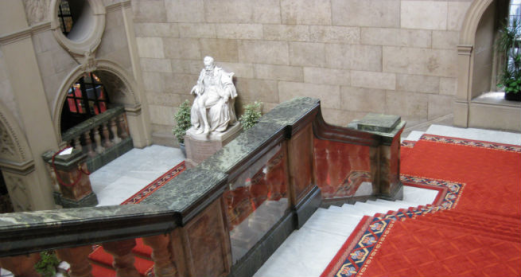
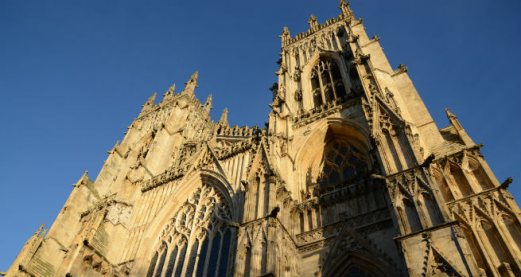
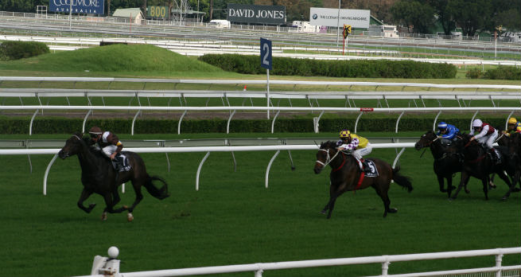
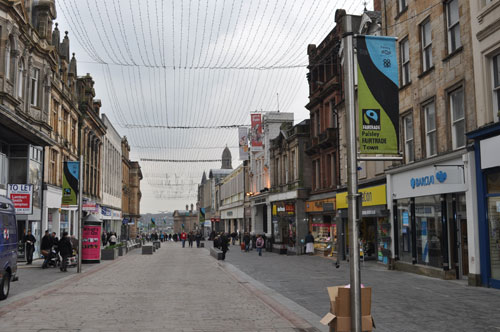
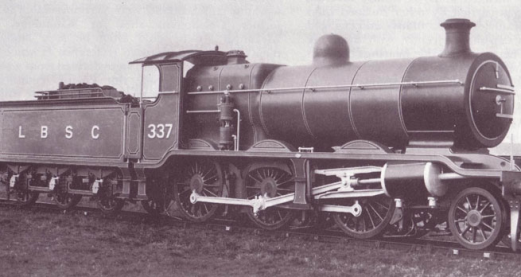
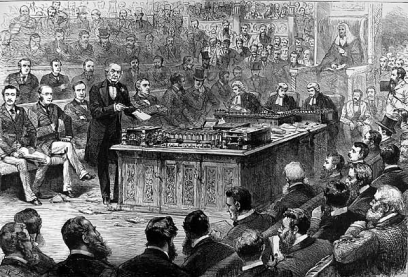

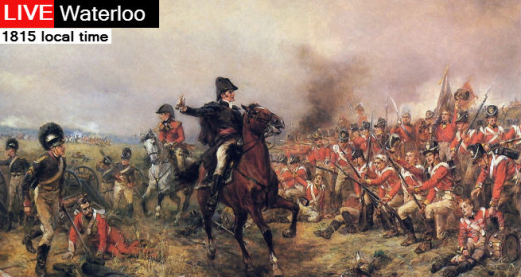
Rate and Review
Rate this article
Review this article
Log into OpenLearn to leave reviews and join in the conversation.
Article reviews